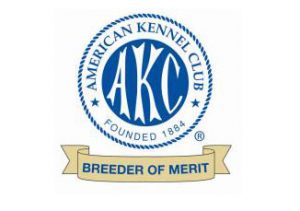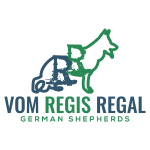What Is the Difference Between Line Breeding and Inbreeding in German Shepherds?
Our canine companions inherit both physical and personality traits from their parents, which means breeding is something that you should really think carefully about before you get a German Shepherd puppy. When dogs are bred carefully and intelligently, the resulting offspring will be free of major health issues and have the temperaments of family pets or working dogs. When breeders place profit above these considerations and breed indiscriminately, the German Shepherd puppies they sell could be difficult to train and prone to genetic hip and elbow problems.
German Shepherd Breeding Basics
The characteristics of the puppies you will be looking at will be determined by the interaction of gene pairs. The puppy gets half of each gene pair from its mother and the other half from its father. However, this does not mean that puppies from the same litter will always have the same traits. Genes can be either recessive or dominant, and this can vary from puppy to puppy. This is why some puppies seem more rambunctious than their littermates.
The question for breeders is how closely related the parents should be. Closely related sires and dams produce predictable offspring because the gene pool is small and there is less room for variation, but puppies bred in this manner are more likely to suffer from genetic conditions like hip dysplasia. Breeding dogs that are not related to each other results in a much larger gene pool, but this approach gives breeders little control over matters like health and temperament.


One of our long-coat German Shepherd puppies
Inbreeding in German Shepherds
Inbreeding is the practice of mating sires and dams that have relatives in common. The problem with this approach is the offspring are far more likely to suffer from inherited disorders. This is especially true when parents are bred with their offspring and siblings are bred with each other. Animals that are closely related to each other often carry the same defective genes, which they then pass to their offspring. The health and behavioral issues this can cause include:
● Inherited disorders
● Reduced viability
● Developmental issues
● Higher infant mortality
● Shorter lifespans
● Compromised immune systems
Inbreeding and Cancer
The consequences of close inbreeding are not always apparent right away. The offspring of closely related sires and dams often have weakened immune systems, which makes them less capable of fighting against infectious diseases and battling tumors. If a dog dies from an illness that it should have recovered from or develops cancer at a young age, there is a good chance that it was the product of close inbreeding.
Outline Breeding
This approach, which is also known as outcrossing, is at the opposite end of the breeding scale and involves pairing male and female dogs that are not related to each other. This is sometimes done to create an entirely new breed like the labradoodle. When pedigree breeders use this approach, it is usually because they want to introduce more genetic diversity. An unrelated sire or dam may also be introduced to reduce the risk of inherited conditions in closely bred bloodlines.
Unpredictability is the chief drawback of outline breeding. Experienced breeders know the health histories and temperaments of their puppies’ parents and grandparents, and they use this knowledge to ensure that they only offer dogs that will be healthy and happy family pets. Outcrossing adds an unknown element to the mix that can have either a positive or negative impact. Outcrossed puppies may be less likely to develop inherited conditions, but there is no way to predict with any confidence how healthy they will be or how they will act.
Line Breeding
Line breeding offers the advantages of both inbreeding and outcrossing without the downsides. It involves breeding dogs that are closely related enough to ensure their puppies will meet breed standards and have temperaments suitable to family life but not so closely related that their offspring will have inherited genetic problems.
This is a more expensive approach as 10 or more generations of dogs must be maintained, but the rewards make the effort worthwhile. Line breeding produces puppies that will lead healthy lives and behave in a predictable manner, and keeping sires and dams at least three generations apart should be enough to prevent common health issues. Farmers have been using line breeding techniques to improve their livestock for thousands of years, but the first person to apply this approach to dogs was a German Shepherd breeder named Lloyd C. Bracket who wrote the book “Planned Breeding” in 1961.
Experience Is the Key
To line breed successfully takes a lot of commitment and experience. This approach involves drawing from a smaller gene pool, which means care must be taken to prevent puppies from getting a double dose of bad instead of good genes. This is done by carefully monitoring the progress of the last three generations for signs of recessive genes and undesirable traits.
Choosing a Reputable German Shepherd Breeder
What does this all mean for someone who just wants an adorable puppy to lavish love and attention on? All breeders are going to say that their dogs are the best and were bred carefully, so what is a potential puppy parent to do? Here are some things you can look out for and some questions you can ask that could make the job of finding a reputable breeder a little easier.
Meet the Parents
If you visit an established breeder like Regis Regal, you will be able to meet the parents of a puppy that catches your eye. If the breeder does not have the parents available and cannot tell you what happened to puppies from previous litters, you may want to look elsewhere.
Health Guarantees
Avoiding inherited conditions like hip dysplasia is one of the chief benefits of selective breeding. Breeders should be honest about these problems and explain what they have done to protect their bloodlines. Regis Regal takes this to the next level by including a lifetime health guarantee with all of their puppies.
AKC Recognition
You should look for a breeder that is part of the American Kennel Club’s Bred with HEART program. This acronym stands for health, education, accountability, responsibility, and tradition. If you really want the best, look for an AKC Breeder of Merit. This recognition is reserved for breeders who have gone above and beyond to prevent health issues, improve genetic screening and nurture calm and loving temperaments.


We are AKC Breeders of Merit
Going the Extra Mile
Breeders who really care about their puppies will pull out all the stops to ensure that they are placed in loving homes. At Regis Regal, we have a courier service that pampers our puppies when they have to make long trips, and we offer both in person and virtual dog training classes for new owners.
Your German Shepherd Puppy Is Waiting
You will remember the day you picked up your German Shepherd puppy as the first step on a wonderful journey. An affectionate companion animal can add light to even the darkest of days, and few companion animals are as loyal or loving as a German Shepherd puppy.
Regis Regal has been breeding German Shepherd puppies in Spring Grove, Illinois, for more than 30 years, and we have been named a Breeder of Merit by the AKC. We understand how exciting it can be to get a new puppy, and we will be there for you every step of the way.
